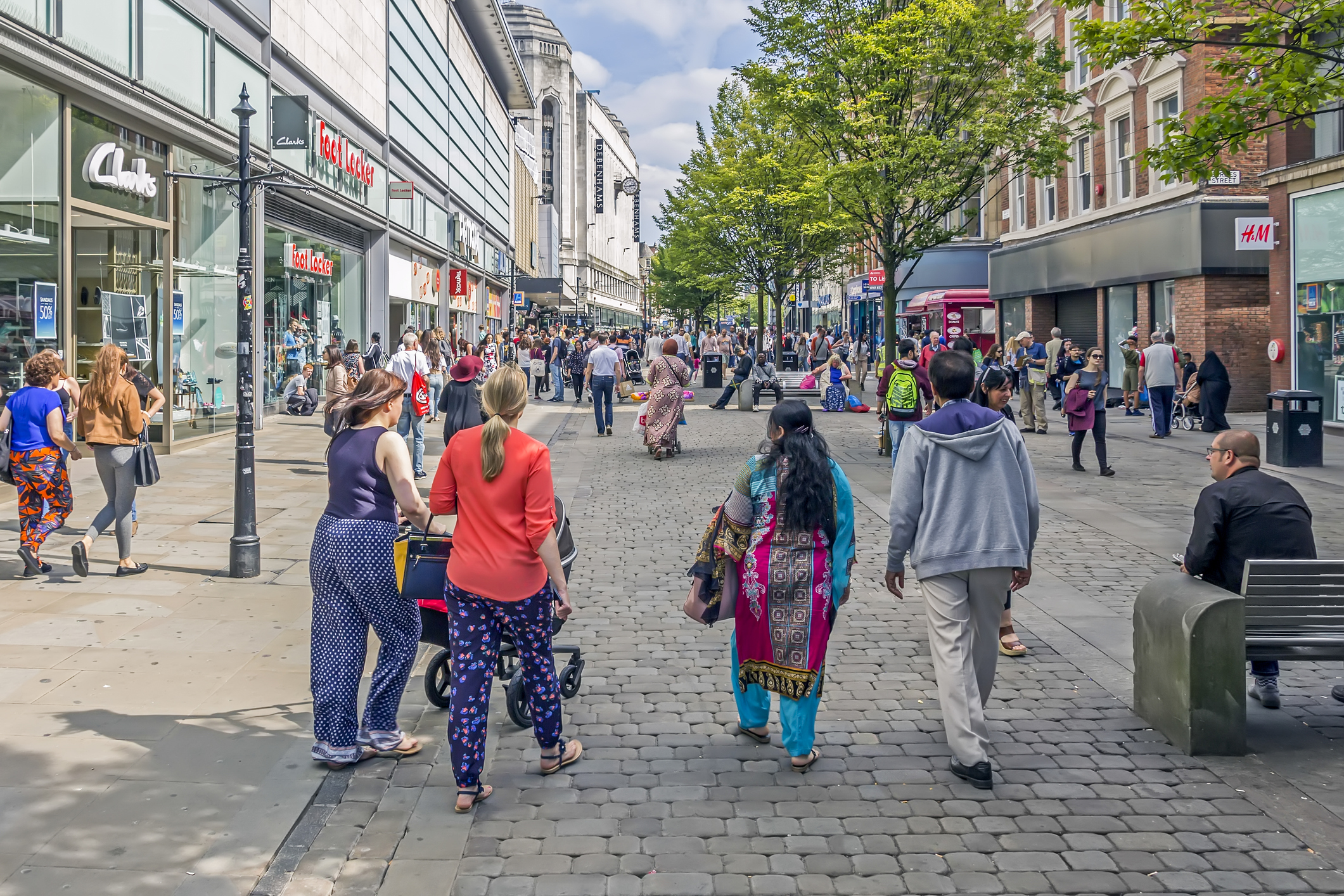Third of people in England unhappy with local job opportunities

- Carnegie UK
- 10 November 2025
- 4 minute read
The share of people in England dissatisfied with local job opportunities has risen by 10 percentage points in the last two years, according to a new report, with a third of people now unhappy with the availability of jobs in their local area. Research by Carnegie UK shows the proportion of people dissatisfied with the availability of job opportunities for people in their local area in England rising from 22% to 32% between May 2023 and May 2025.
The same study – based on a survey of 4466 adults – also reveals fewer people in England feel they could rely upon someone locally in an emergency than elsewhere in the UK. In addition, the research finds declining trust in local councils in England alongside more people experiencing problems with litter and noise pollution.
These findings form part of Carnegie’s Life in the UK Index which last month showed that the collective wellbeing of the people of the country as a whole was not improving. Their research breakdown for England shows that income, area deprivation and disability status are the biggest factors influencing someone’s overall level of wellbeing.
Sarah Davidson, chief executive of Carnegie UK, said: “Many people in England are dissatisfied with local life. We see unhappiness with job opportunities, declining trust in councils and rising frustration with litter and noise pollution. Unsurprisingly, our research also shows that people on lower incomes, disabled people and those who live in more deprived areas are more likely to have tougher lives.”
The policy foundation argues that changes to local and regional government in England must give politicians and officials the tools to address the biggest problems faced by local people. Furthermore, Carnegie UK say that political institutions should experiment with new ways of working to ensure local people are more involved in their decision-making.
Sarah Davidson said: “There’s an opportunity to give new local political institutions in England the tools to tackle the issues that matter to people. That doesn’t mean that there won’t be hard choices and trade-offs, but it could mean that politics won’t feel as remote to so many.
“We would suggest that there’s real opportunity for councils and mayoral authorities to work more closely with communities through well-designed participative initiatives such as citizens’ panels. This could not only help to restore trust but also identify local priorities.”
The research shows 43% of people in England have low trust in the UK Government, an improvement of nine percentage points since 2024 when over half (52%) had low trust.
Polly Curtis, chief executive of the cross-party think tank, Demos said: “The small but notable increase in public trust in government this year offers a glimmer of good news in an otherwise grave outlook. It signals that there is still hope to rebuild trust in the state – but only when these fundamental problems impacting communities are addressed.
“The erosion of a public safety net, the loss of connection in communities and issues with job creation are defining what it feels like to live in the UK today. To restore the social contract between citizens and the state, the government must serve up a much clearer vision for national renewal before the year is out.” Carnegie’s Life in the UK Index (based on a 26-question survey of 7106 people including 4466 in England) looks at the social, economic, environmental and democratic aspects of life in the UK. The headline index score for England – designed to measure the collective wellbeing of people in the country – is 62 out of a possible 100, the same as the UK average. Now in its third year, the index shows no improvement to wellbeing in England between 2023 and 2025 in common with the UK as a whole.
Contact
Stuart Mackinnon: [email protected]/07934 296831
Help us make the case for wellbeing policy
Keep in touch with Carnegie UK’s research and activities. Learn more about ways to get involved with our work.
"*" indicates required fields